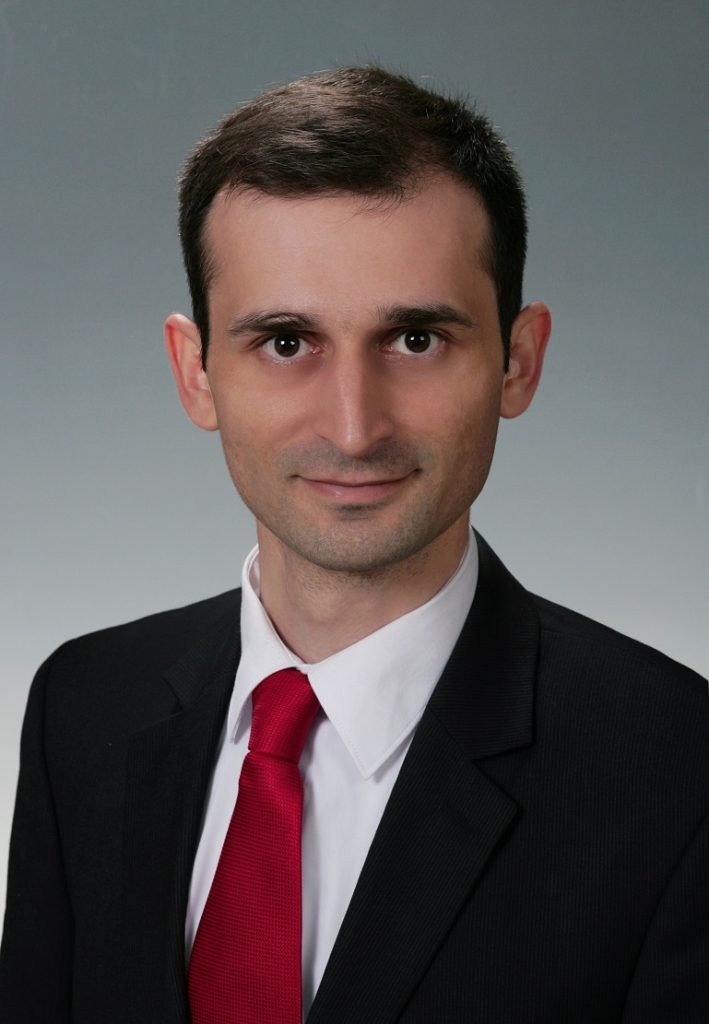Dr. Deyan Radev
Dr. Deyan Radev graduated a speciality in Economics at Faculty of Economics of Sofia University St. Kliment Ohridski in 2006 and completed master’s programme in International Business and Economic Relations at University of Konstanz, Germany, in 2008. In 2013, Dr. Radev obtained doctoral degree at Goethe University, Frankfurt, upon completion of his thesis in Systemic Risk and Infection in the European Union. The thesis won two German national awards in 2014: Best Thesis of Deutsche Bundesbank and Hochschulpreis of the prestigious Capital Markets Academy at Deutsche Börse. The indices for systemic risk assessment in the euro area developed in the thesis are used by European Central Bank in the periodical European Systemic Risk Board’s Risk Dashboard. Since 2013, Dr. Radev has been a postdoctoral fellow at Goethe University, and since 2016 he has been a lecturer in finance at University of Bonn where he teaches English courses on empirical finance and banking for obtaining bachelor’s, master’s and doctoral degrees. Since February 2020, Dr. Radev has been an assistant at Faculty of Economics of Sofia University St. Kliment Ohridski.
Dr. Radev’s research projects were presented to Federal Reserve Board, European Central Bank, Bank of England, German Central Bank, Bank for International Settlements, and at the conferences of American Economic Association, European Economic Association, etc.
Except in the field of systemic risk, Dr. Radev is interested in the following fields: financial economics, banking and financial regulations, banking reorganisation, financial stability, fintech and digitalisation, risk management, national bankruptcy, political economy and applied econometrics.
In 2019, he obtained funding for his project under Peter Beron National Science Programme. Here is a brief summary of the project The Effect of Brexit Vote on the European Banking System and Economy: Has the Risk for European Banks increased and what is the Magnitude of the Real Economic Effects of the Referendum?
After decades of growing economic and political integration, the outcome of British referendum on staying in the European Union (EU) has affected European and global financial markets and economies. And while the impact of Brexit on the British economy and banks has been extensively analysed and documented, there is no research which may analyse the exact channels through which the future exit will affect the banking systems and economies in the EU. Another unexplored issue concerns the effect of Brexit on Central and Eastern Europe (CEE). CEE offers perfect laboratory conditions for comprehensive analysis of the financial and real effects of Brexit, since many banks in the region are owned by Western European banks operating in the United Kingdom, but they themselves do not operate directly there. This makes the referendum outcome an exogenous shock for CEE banks, which is of critical importance for statistical identification of the effects. A third issue that has remained unexplored so far concerns the gender dimension of the transfer of exogenous events across national borders. Namely, what is the impact of women in the role of CEOs of banks on the transfer of negative outcomes from the referendum to real economy? CEE has again an advantage in analysing this empirical issue, due to the higher proportion of women heading banking and governing boards compared to that in Western Europe. The main objectives of the proposed project are to find answers to the scientific questions posed with the help of the most advanced methods in the field of empirical finance and banking. In addition to the comprehensive research, dissemination and communication plan, the project proposal contains also a training programme to update and expand the technical and general skills of the researcher, which will increase his competitiveness in the academic and non-academic labour market. The researcher himself plans to expand the curriculum of Sofia University St. Kliment Ohridski, adding disciplines at bachelor, master and doctor level, which are taught at some of the best German and Dutch universities. The project is inspired by the life, excellence and patriotic mission and example of Dr. Peter Beron, and aims to increase the quality, competitiveness and international visibility of economic research conducted in Bulgarian universities and to raise the level of human capital in the economic sphere in Bulgaria.

